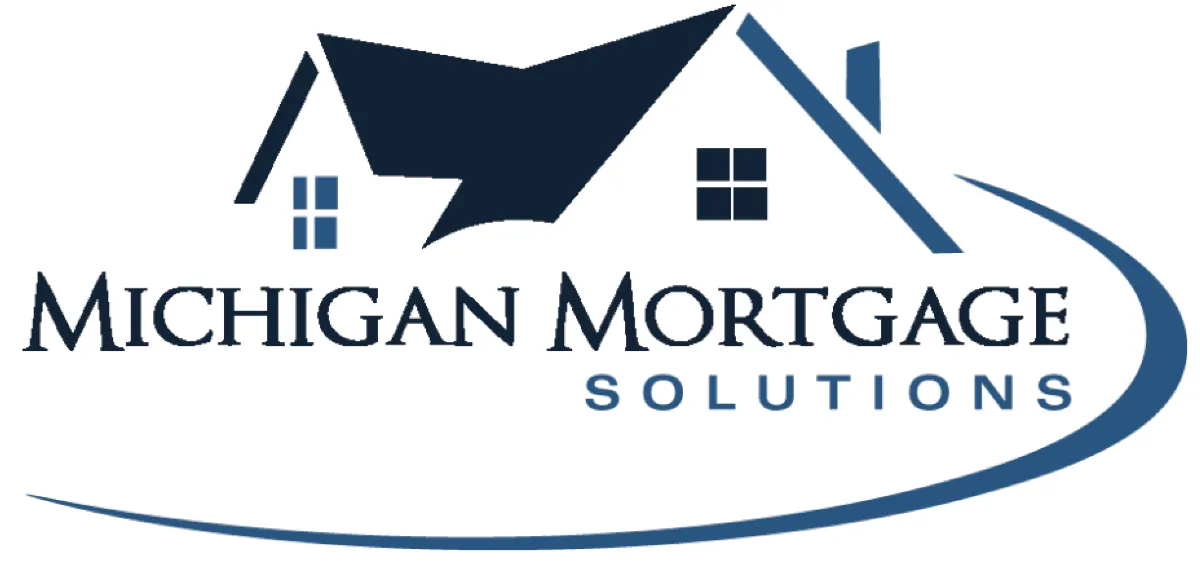Unlock the Power of DSCR Loans in Michigan Today
Picture this: over 60% of Michigan real estate investors are now turning to DSCR loans to rapidly build their rental portfolios—outpacing traditional lending models and redefining the state’s property investment scene. If you’re ready to step up as an investor or want to expand your holdings fast, DSCR loans in Michigan might be the game-changing financial tool you’ve been looking for.
Discover the Advantages of DSCR Loans in Michigan
"Statistics show that over 60% of Michigan real estate investors now leverage DSCR loans to rapidly scale their property portfolios, redefining traditional lending landscapes."
DSCR loans in Michigan are paving the way for both new and seasoned real estate investors by offering a simplified, results-driven route to expand investment portfolios. Unlike conventional loans that depend heavily on your personal income, these loans use the debt service coverage ratio (DSCR) to qualify your loan—meaning, it’s your rental income and the property’s cash flow that drive the approval process. The advantages? Streamlined documentation, faster approvals, and, in many cases, better rates than you’d find with a traditional loan for an investment property.
Understand how DSCR loans in Michigan empower investors
Explore DSCR loan features, benefits, and common qualifications
Compare DSCR loans in Michigan to conventional options
Learn about current interest rates, approval processes, and pivotal loan terms
Identify the best property types and strategies for DSCR loans in Michigan
What You'll Learn About DSCR Loans in Michigan
Key terms: DSCR loan, debt service coverage ratio, investment property, rental income
Benefits of DSCR loans in Michigan for real estate investors
Critical qualification factors and required documentation
Navigating interest rates and lending terms
Tips for maximizing DSCR loan profitability
DSCR Loans in Michigan Explained
What Are DSCR Loans? (dscr loan, dscr loans)
DSCR loans—short for Debt Service Coverage Ratio loans—represent a financing option designed specifically for real estate investors seeking to purchase or refinance investment property in Michigan. Unlike traditional mortgages, a DSCR loan doesn’t focus on your personal income, tax returns, or bank statement for qualification. Instead, the lender looks at how well the rental income from the property can cover the loan’s payments, using a metric called the debt service coverage ratio (DSCR). This approach is built for flexibility and speed, removing common barriers for both established and aspiring investors.
Thanks to their streamlined requirements, DSCR loans in Michigan have become the go-to solution for scaling rental portfolios or acquiring new properties, especially in a thriving real estate market. Whether you’re invested in single-family homes, multi-units, or short-term rentals, DSCR loans are making real estate investment more accessible—no W-2s or lengthy income verification required.
Key Features of DSCR Loans in Michigan (dscr loans in michigan, michigan dscr, loans in michigan)
What sets DSCR loans in Michigan apart from other loans in Michigan? The chief distinction lies in their qualification process and their investor-friendly design. For the Michigan real estate community, DSCR loans deliver:
Qualification based on rental income instead of personal or self-employment income
No need for tax returns or detailed bank statement analysis—approval is swift and less paperwork-intensive
Flexible use across various investment properties: from traditional rentals to short-term rental accommodations (like Airbnbs and vacation homes)
Terms aligned with the needs of the Michigan DSCR market—competitive rates, options for rate buydowns, and scalable loans for larger portfolios
How DSCR Loans Work for Investment Property and Rental Property
DSCR loans are structured with the modern real estate investor in mind. Here’s how it works: eligibility is primarily determined by projected rental income, which must exceed the loan’s monthly payment and related obligations—your debt service. The critical figure is the debt service coverage ratio (DSCR), calculated by dividing the property’s net operating income by the total loan payment. A DSCR of 1.0 or better generally qualifies you, making it a more achievable option for many that might have difficulty with income verification for a traditional loan.
In practice, this means investors can scale their portfolios quickly, using reliable rental properties as the key to unlocking new financing. DSCR loans support a range of property types, including single-family units, small multi-families, and even short-term rentals. As a result, loans in Michigan via the DSCR model give applicants an effective way to transition from small-time landlord to full-fledged real estate entrepreneur—without conventional income barriers.
Loan eligibility based on rental income, not personal income
Flexible property types: single-family, multifamily, short-term rental
Keys to using debt service coverage ratios in underwriting
DSCR Loan Benefits for Michigan Real Estate Investors
Why Choose DSCR Loans in MI Over Conventional Loans?
In the battle between DSCR loans in MI and conventional financing, investors are increasingly choosing DSCR loans to supercharge their real estate ambitions. The biggest reason is flexibility: there’s no detailed scrutiny of your personal bank statement or employment status. Instead, the loan is sized and approved based on your property’s ability to generate cash flow. This benefits all investors, especially those with multiple investments, side businesses, or non-traditional sources of income. For Michigan’s dynamic rental market, lower documentation hurdles and competitive rates make DSCR loans especially attractive for rapid expansion.
DSCR loans also offer more favorable approval odds for those expanding quickly, refinancing several investment properties, or reinvesting after a property sale. The decisively investor-first philosophy puts Michigan’s thriving real estate market within easier reach, bypassing outdated lending standards that often slow down traditional loan approvals.
Limited Documentation and Fast Approvals
A core selling point of DSCR loans in Michigan is the swift, hassle-free application process. Applicants aren’t required to show tax returns, undergo invasive income verification, or build exhaustive financial narratives to prove eligibility. What does this mean for you? You can go from application to closing with remarkable speed—sometimes in as little as a few weeks. The focus remains on your rental income and the property’s ability to reliably service its debt.
For seasoned investors managing several rental properties (as well as newcomers), limited documentation is a true advantage. No need to stress over the fine print in your bank statement or gaps in your personal income—the property does the talking. The approval process is built to suit the pace of Michigan’s fast-moving real estate market, helping you act on new opportunities before the competition.
Lower Interest Rates Compared to Other Investment Property Loans
Michigan DSCR loan programs are engineered for cost-effectiveness, routinely offering interest rates that beat out alternative investment property financing options. While conventional loans can bog you down with higher rates, especially for investors stacking multiple mortgages, DSCR loans reward property-level performance with rates that often start as low as 6.25%. This saves you considerable interest over the life of the loan, letting your rental income stretch further—fueling even more acquisitions or renovations.
"Michigan DSCR loan programs offer streamlined approval with rates starting as low as 6.25%, making property acquisition more accessible than ever."
Lower interest rates also help you achieve stronger cash flow, higher returns, and greater portfolio scalability—all without the headaches traditional banks can cause when evaluating investment properties.
Qualification Criteria for DSCR Loans in Michigan
Understanding the Debt Service Coverage Ratio Requirement
The beating heart of all DSCR loans in Michigan is the debt service coverage ratio. This metric determines whether your rental property generates enough rental income to cover the loan’s full payment (including principal, interest, taxes, and insurance). Most lenders require a DSCR of 1.0 or greater (meaning the property earns at least enough to pay its debts). The higher your DSCR, the better your odds for approval, and the more favorable your interest rate and terms.
To calculate your DSCR, simply divide the property’s net operating income by the proposed monthly loan payment. For example, if your rental earns $2,000 monthly and the new loan payment (PITI) is $1,800, your DSCR is 1.11—strong enough for most Michigan lenders. This approach means you can qualify for substantial mortgages with limited documentation, as long as your coverage ratio is healthy.
What Documentation Is (and Isn’t) Needed?
Streamlined documentation is a defining hallmark of DSCR loans in Michigan. You’ll need to provide rental income statements (such as leases and bank deposit records), property operating statements, and a recent property appraisal. There’s typically no need for tax returns, exhaustive bank statement reviews, or in-depth personal income documentation. Many programs work with moderate credit score thresholds, making the path to approval even more inclusive.
Typical DSCR loan qualifications
Required rental income documentation
Flexible credit score thresholds
By focusing on real-world rental performance and the asset’s strength, DSCR loans clear common roadblocks—making them a favorite among growth-minded real estate investors determined to move fast in Michigan’s competitive market.
Which Properties Are Eligible for DSCR Loans in Michigan?
Single-family homes
Duplexes, triplexes, fourplexes
Short-term rentals
DSCR loans in Michigan grant investors exceptional flexibility in property types. Whether you’re eyeing a single-family rental in a desirable suburb, a duplex or triplex in an up-and-coming urban corridor, or a vacation home dedicated to short-term rentals (like Airbnbs), you’ll likely find eligible lending programs. This breadth enables investors to maximize profits in different market segments and diversify portfolios against changing real estate trends.
These loans are ideal for investors who want to capitalize on new popularity around short-term rentals or who see the long-term benefit in multifamily cash flow—without getting bogged down by strict personal qualification rules.
DSCR Loan Rates and Terms in Michigan
Current Interest Rates for DSCR Loans in Michigan
The interest rate environment for DSCR loans in Michigan is highly competitive, with lenders often offering starting rates from 6.25% to 8% (as of 2025). These figures compare favorably to other investment property financing options, particularly for investors who need speed and streamlined qualification over lengthy underwriting. Factors influencing your exact rate include your DSCR, property location, loan-to-value ratio, and your credit score.
Comparing DSCR Loan Terms: Michigan vs. National
When it comes to loan terms, Michigan DSCR loans are on par with or, in some cases, better than national averages. Investors in Michigan benefit from flexible terms, rate buydown options, and faster closing times. The table below breaks down how DSCR loan products stack up regionally and nationwide.
Feature | Michigan DSCR Loan | National Average DSCR Loan |
|---|---|---|
Interest Rate | 6.25% – 8% | 6.5% – 9% |
Loan Term Length | 30 years fixed & adjustable terms | 30 years fixed & adjustable terms |
Approval Timeline | As fast as 14–21 days | Average 21–30 days |
How to Improve Your DSCR and Access Better Rates
Maximizing your debt service coverage ratio is the best route to secure lower interest rates and better terms. To do this, focus on boosting your rental income (increase rents, reduce vacancies), strategically manage property expenses, and maintain strong lease agreements. Clean, well-kept properties with solid tenant histories are more likely to attract favorable lender treatment. If possible, make a larger down payment to improve your loan-to-value ratio, which can further drive down your interest rate.
Smart investors regularly review property performance versus their loan obligations—making tweaks as needed to keep cash flow robust and DSCR high. This proactive approach locks in loans with lower payments and easier approvals, helping you outpace your competition in Michigan’s evolving real estate market.
Real-World DSCR Loans in Michigan: Case Studies & Success Stories
Scaling a Portfolio with Michigan DSCR Loans
Michigan investors are achieving rapid portfolio growth by using DSCR loans for rental and investment properties. One client’s journey highlights this transformation: starting with just two rental homes, they leveraged DSCR financing to purchase eight more properties over three years—without ever submitting personal income statements or tax returns.
"With DSCR loans, we grew from two rental properties to ten within three years without traditional income verification."
By focusing on strong operating performance and effective property management, this investor unlocked capital for reinvestment and scaled far faster than would have been possible through strict conventional lending channels.
Common Pitfalls and How to Avoid Them in the Michigan Market
While DSCR loans in Michigan offer immense opportunity, investors should watch for a few key pitfalls. Underestimating vacancy rates, over-projecting rental income, or ignoring updates to property condition can usher in trouble—potentially lowering your DSCR and risking default or failed approvals. Additionally, some investors miss out on better rates by neglecting to improve their credit profile or by not shopping programs from multiple lenders.
Mistakes investors make when applying for DSCR loans
Best practices for managing rental income and debt service
Avoid these missteps by regularly monitoring property performance, setting realistic expectations, and choosing partners familiar with the nuances of Michigan’s rental market. Stay organized with documentation and keep communication open with your lender for the highest chance of ongoing success.
Frequently Asked Questions About DSCR Loans in Michigan
What is the interest rate for a DSCR loan in Michigan?
Answer: Interest rates for DSCR loans in Michigan typically range from 6.25% to 10.5%, depending on loan-to-value ratio, rental income, and borrower credit profile.
What qualifies you for a DSCR loan?
Answer: You generally qualify with a DSCR of 1.0 or higher, adequate rental property income, and basic documentation—personal income proof not required.
What is the downside of a DSCR loan?
Answer: DSCR loans may come with higher fees, prepayment penalties, or stricter property condition standards compared to conventional mortgages.
Is a DSCR loan hard to get?
Answer: DSCR loans are generally easier to qualify for than conventional loans for investment properties thanks to relaxed documentation rules, but rental property income must meet required coverage thresholds.
DSCR Loans in Michigan: Key Takeaways
DSCR loans in Michigan enable easier access to investment property financing
Approval focuses on rental income, not personal employment or bank statements
Favorable terms and competitive interest rates vs. conventional financing
Conclusion: Secure Your Michigan DSCR Loan and Transform Your Real Estate Investing
Ready to leverage DSCR loans in Michigan for your next property? Contact us at 248-963-1894 today for a personalized quote and start growing your portfolio with confidence.

Written By: Trevor Sines
Trevor Sines is a senior loan officer with Michigan Mortgage Solutions.


Contact Us
Service Hours
Social Media
Monday - Friday: 9:00 AM - 6:00 PM
Saturday: 9:00 AM - 12:00 PM
Sunday: Closed
More Locations We Serve
All Rights Reserved Corporate NMLS 136972
Contact Us
(248) 963-1894
35 W Huron St #301
Pontiac, MI 48342
Service Hours
Monday - Friday: 9:00 AM - 6:00 PM
Saturday: 9:00 AM - 12:00 PM
Sunday: Closed
Social Media











